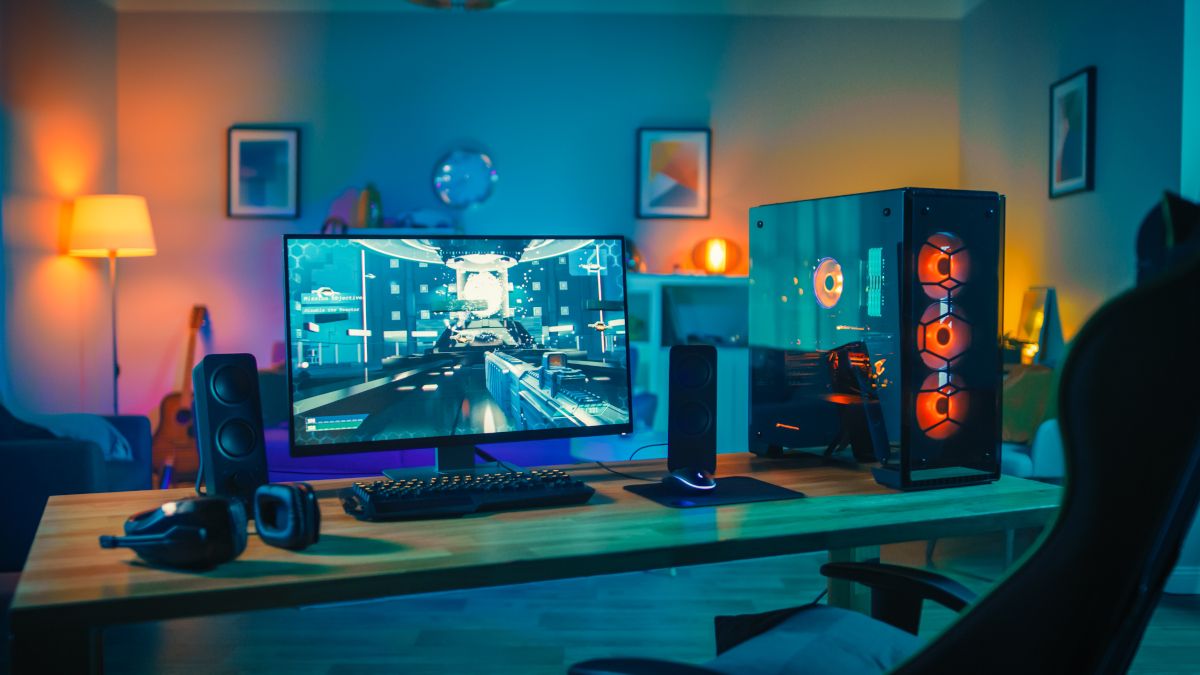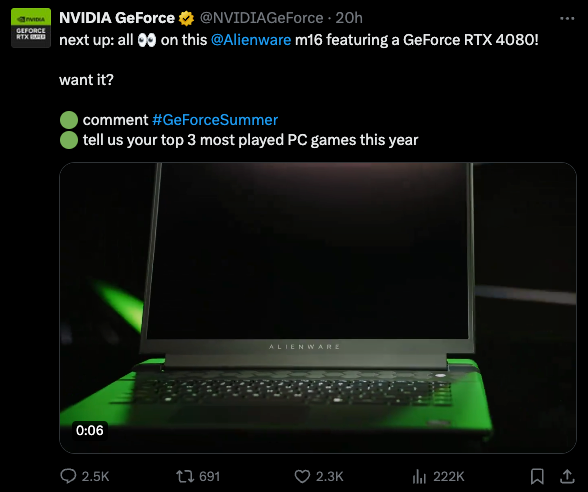
Avoid Scams: How to Spot and Avoid Bogus Gaming Computer Contests Online

Avoid Scams: How to Spot and Avoid Bogus Gaming Computer Contests Online
Key Takeaways
- Social media accounts run gaming PC giveaways using fake photos to gain followers and impressions.
- Scammers never have to prove the existence of a prize, making it an easy and risk-free scam.
- Use reverse image searches to track down the source of PC giveaway photos, but real giveaways are unlikely from random accounts.
Gaming PCs are expensive, it’s true. If you want something substantially more powerful than a console, you’ll have to dig deep and splash a fair bit of cash. So it’s no surprise that gaming PC giveaways will always attract lots of attention, which is the basis of an annoying scam.
That PC Photo Can Be From Anywhere
The usual way things go is that an account on a social media platform posts a photo of a beautiful gaming PC, and then promises to do a draw for anyone who shares the post and follows the account. The problem is that anyone can just take a photograph of a sweet PC build from the internet and repost it. Just having a photo of the system isn’t evidence that they have anything to give away.

Gorodenkoff/Shutterstock.com
At the same time, there’s a strong incentive to gain followers, and get as many impressions as possible on posts if you have a monetized account. The reason for the engagement doesn’t really matter as long as enough impressions are harvested. Even accounts that aren’t currently monetized might be trying to get enough followers and impressions to qualify. There’s also the practice of building up large accounts and then selling them to third parties who use them for their own purposes.
No One Is Giving Away Expensive PCs for Likes and Follows
If you just think about it for five seconds, it makes no sense for someone to give away a computer worth thousands of dollars just for a few followers and likes. Some of these accounts run a “giveaway” almost every week. If a company that builds gaming PCs gives away a few every year using an account that already has tens of thousands of followers, that makes sense. It’s just part of the marketing budget and, besides, they don’t pay retail for their components! Random, no-name accounts trying to build a following? That smells fishier than the ocean.

A legitimate gaming laptop competition from the verified social media account of NVIDIA.
You Can Do a Reverse Image Search
While scammers can get a photo from anywhere, that doesn’t mean it’s impossible to track down where the image came from. There are numerous reverse image search tools you can use to track down where a photo is from. However, even if a reverse image search turns up nothing, that doesn’t mean the giveaway is legitimate.
In fact, unless the competition is backed by a known entity like a company with an address, there’s virtually zero chance that the giveaway is real. Even if, by chance, the giveaway is real, it’s an unregulated competition by some random person. So, even then, there are liabilities and perhaps even legal risks to participating.
Scammers Never Have to Prove There Was a Prize
The most ingenious part of this scam is that the scammers never have to prove that there ever was a prize, or that anyone actually got a free PC. It’s as easy as simply announcing there was a winner, and that they were contacted privately. Some may go even as far as creating fake accounts to choose as the “winner” of a prize that never existed. Alternatively, if there is a real “prize” they can simply give that to a fake winner repeatedly, with no one any the wiser.
Whether people realize later that it was all a ruse doesn’t matter all that much. You’ve already given your impressions, your time has already been wasted, and the majority of people who liked the post, reposted it, and followed the account will never know or reverse those actions. So, from the scammers’ point of view, there isn’t much of a downside.
Maybe you think of these sorts of scams as largely harmless, but ultimately, they’re easy to avoid and obvious if you stop to think. They could also serve as the basis for a less benign type of scam, such as asking the “winner” to pay shipping and import fees for a computer that doesn’t exist. Either way, you’re better off not participating.
Also read:
- [Updated] Streamline Your Content Twitter Video Integration for 2024
- 2024 Approved Unlock Video Insights Top 7 Free, Easy-to-Use Tag Extraction Software Reviewed
- Efficiently Launching AI Browserscripts Through the Power of AgentGPT
- How to Enjoy Music Together with Friends on Spotify
- How to Reset Apple iPhone 12 mini to Factory Settings? | Dr.fone
- Is GSM Flasher ADB Legit? Full Review To Bypass Your Xiaomi Redmi Note 13 Pro 5G Phone FRP Lock
- No More Crashing: A Comprehensive Guide to Fix After Effects Bugs on Recent Windows Versions
- Non-Tripod Techniques for Still Cameras for 2024
- Simple ways to get recent calls back from C51
- Things You Dont Know About Oppo A79 5G Reset Code | Dr.fone
- Undeleted lost videos from OnePlus
- Windows 11 Audio Recording Techniques
- Title: Avoid Scams: How to Spot and Avoid Bogus Gaming Computer Contests Online
- Author: Ian
- Created at : 2025-02-15 01:04:03
- Updated at : 2025-02-19 19:34:37
- Link: https://techidaily.com/avoid-scams-how-to-spot-and-avoid-bogus-gaming-computer-contests-online/
- License: This work is licensed under CC BY-NC-SA 4.0.